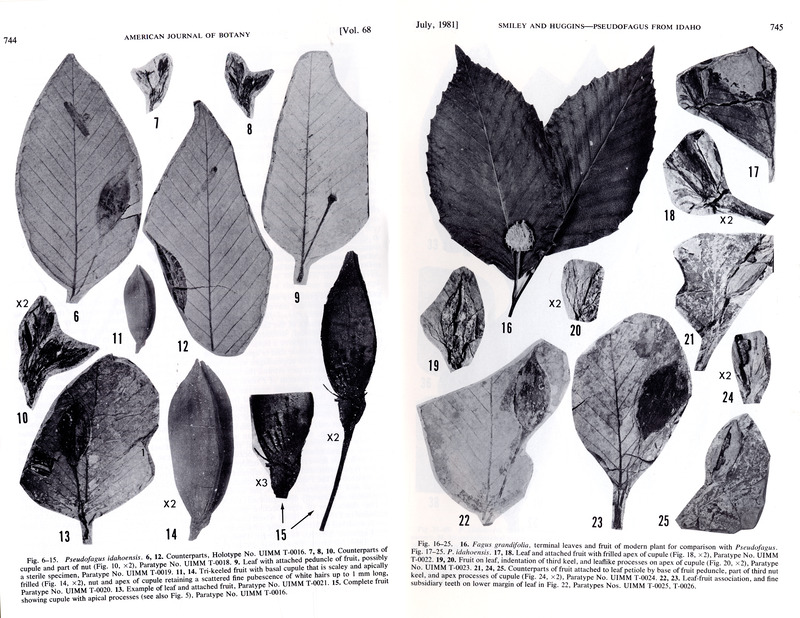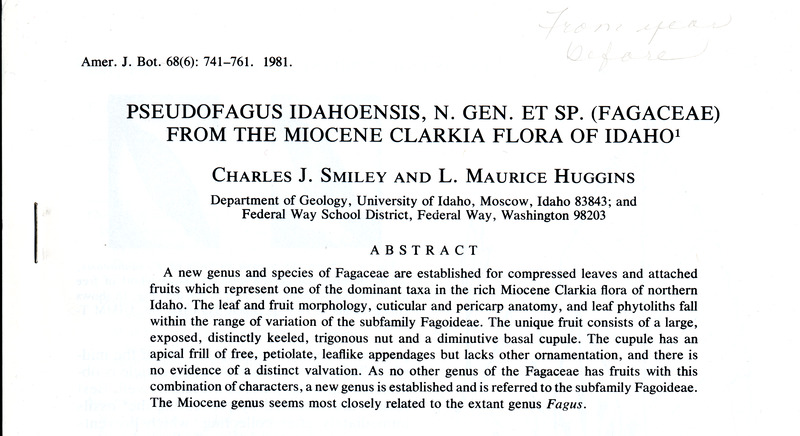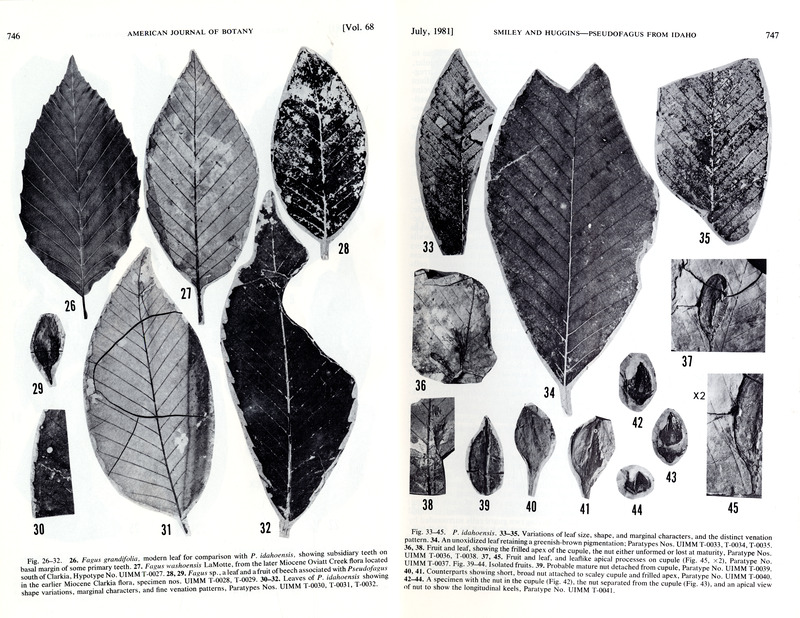Fossils are found all over the world, including the state of Idaho. Here the specimens collected are typically from the late Pliocene (5.4-2.4 million years ago) and Pleistocene (the Ice Age). Examples of this can be seen at the Hagerman Fossil Beds National Monument in Hagerman, Idaho. This historic area is a beautifully preserved testament to the past.
While visiting the monument may be on a few Vandal bucket-lists, there are similar areas much closer to home. An hour Northeast of Moscow is the Clarkia Fossil Site in Clarkia, Idaho. In 1976, the University of Idaho supported a grant to conduct research of the Clarkia site. The project leader was Charles J. Smiley of the university’s Department of Geology, and his graduate assistant was William C. Rember. Extinct plant species were found dating to the Miocene age, and extensive examination of leaf microstructures were conducted.
About fifty miles east of Moscow, is the Oviatt Creek Fossil Bed. Smiley and Rember submitted a proposal to research the newly established fossil bed in 1978. They explained the bed contained well-preserved fossils and lake sediment data of the Miocene age. The preliminary discoveries Smiley and Rember made included a possible extinct species of water beetle and an extinct species of oak. Additionally, the site produced the first cone of a tulip tree of the eastern United States, known as the Liriodendron.
To read Smiley and Rember’s submitted proposals and resulting works, check out the University of Idaho Research Office Records found in UI’s Special Collections and Archives.
Sources
Folder 465, University of Idaho Research Office Records, UG 046, Special Collections and Archives, University of Idaho Library, Moscow, Idaho.
Smiley, C. S., & Huggins, L. M. (1981). Pseudofagus Idahoensis, N. Gen. ET. SP. (Fagaceae) From The Miocene Clarkia Flora of Idaho. American Journal of Botany, 68(6), 741-761.




